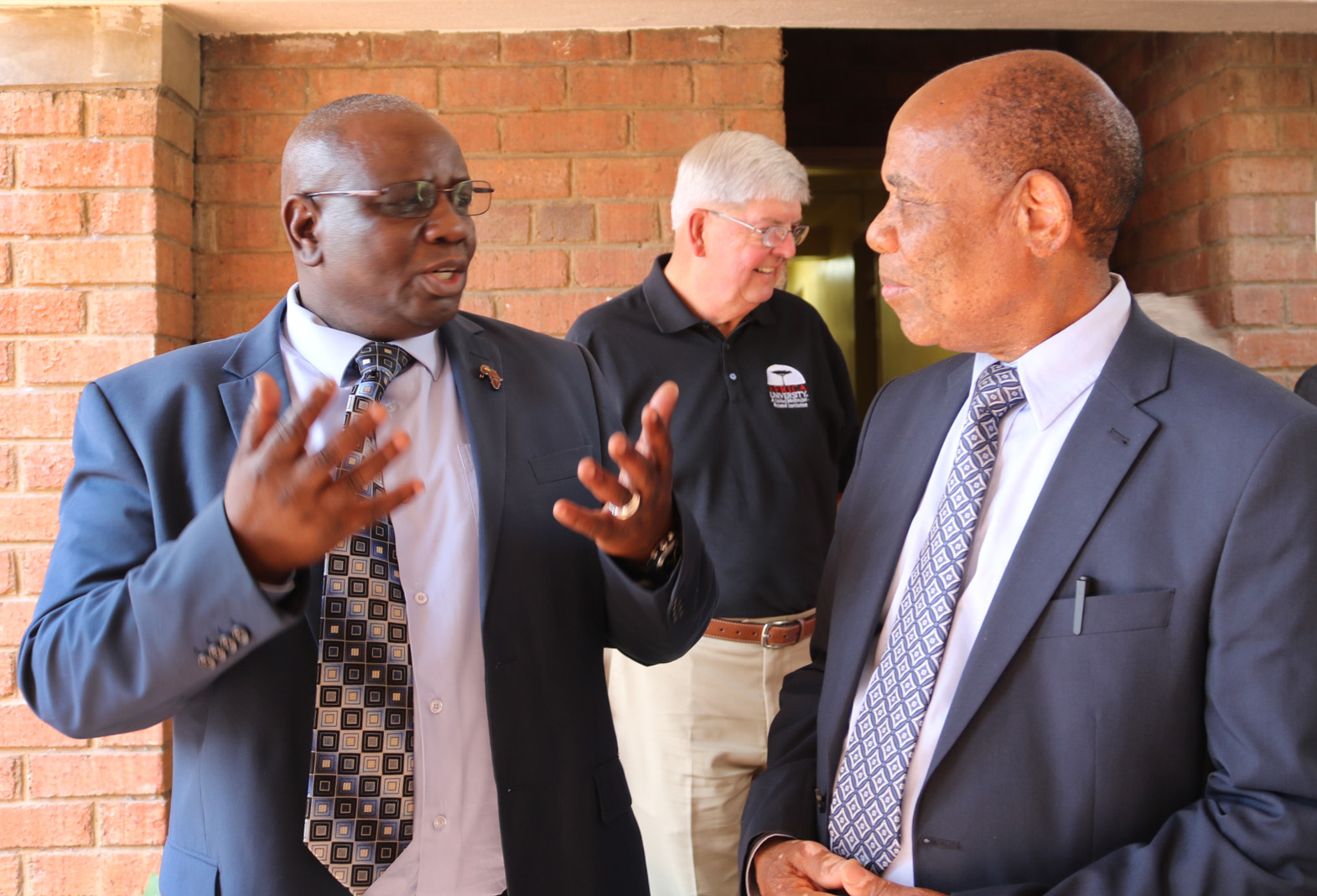Africa University has strategies for continued growth despite the economic struggles facing Zimbabwe, the United Methodist school’s vice chancellor said.
“We are not saying that it is doom and gloom because we are people of faith; our mettle emerges during difficult times. That is when we show what we can do as leaders of this university,” Munashe Furusa said.
In his report to the Africa University board of directors, Furusa said Zimbabwe is facing challenges that include fiscal deficit, inflationary pressures and foreign currency shortages.
There is erratic availability of commodities, rapid changes in prices of basic goods and increased operational costs, he said.
“Our response has always been closer communication with our stakeholders. We look at those variables that are within our purview and we control those, and for the other variables that we cannot control, we try to figure out how to minimize the impact,” Furusa said.

“We have become a nimble university community. We have said we need to put wheels on our feet,” he said.
The key costs incurred by the institution are electricity, staff, transportation, repairs and refurbishments. One building that houses students was recently refurbished at a cost of $39,000.
“As we try to hire the best and brightest staff, it is going to cost us more, but we are determined because our guiding principles are prudence and efficiency, achieving more with less,” he said.
“We are growing all the time in spite of the prevailing economic challenges,” he said.
Africa University is currently rated University 4.0 by the Zimbabwean government. The rating means the university offers the four elements of teaching, research, community engagement and innovations. The highest grade is 5.0, which includes business enterprise development.
He said there is demand for people who solve problems that “bedevil this world in the church, health, peace and governance. We need to be those people who will solve those problems, who are prepared to lead meaningful lives and improve society with new information technologies,” Furusa said. “We have to train our students because they are not going into the world to live in their own village, they are going to interact with the world.
“We want our students to be rooted in the pillars of culture and heritage. We want our students to understand that when we talk of culture and heritage, we are not talking of drums and dances, but we are talking of the resources that Africa has. Do they know these resources and can they turn them into the Africa that we deserve to live in?” he asked.
Furusa said the university is looking for partners to develop an agro-industrial park, where farmers in the Manicaland province where the university is located could refrigerate produce so it won’t spoil before they get it to market. He said the park could also provide a market for selling the produce.
He also expressed gratitude for a grant from the United Methodist Board of Higher Education and Ministry that was used to develop a pre-doctoral certificate program in theology and religion.
The grant “will make AU the center for intellectual engagement in matters relating to theology and religious studies. It is going to support key scholars from Africa and the world to come and conduct seminars for candidates and surrounding communities,” he said.
The vice chancellor thanked the Zimbabwe Episcopal Area for being the first conference on the African continent to give two full scholarships from funds raised during the annual Africa University Sunday celebration in local churches in the Zimbabwe East and Zimbabwe West annual conferences.
Some of Africa University’s milestone achievements were highlighted during the Oct. 16-19 board meeting, including:
- Research on child rights, immigration and migration issues, peace and governance and malaria.
- There were 618 graduates in the class of 2018, bringing the number of alumni to more than 8,000.
- More than 900 first-year students enrolled this year.
- Former Vice Chancellor Fanuel Tagwira was appointed Permanent Secretary in the Ministry of Higher and Tertiary Education, Science and Development.
- Two buses, a 30-seater and 65-seater, were acquired.
- The university has installed sporting facilities, including a swimming pool funded by the Baltimore-Washington Conference and a rugby field nearing completion. The conference raised the money for the swimming pool in honor of Bishop Marcus Matthews after he retired.
- Enrollment in the Institute of Theology and Religious Studies rose to almost 90 students.
- A draft for Africa University’s PhD program was completed.
- Student Representative Council, led by Brian Sichula, raised money to support needy students on campus. The council also provided awards during matriculation, the first-ever awards given by students.
- The university has become the center for intellectual property studies in the region.
Chikwanah is a communicator of the Zimbabwe East Conference. News media contact: Vicki Brown at (615) 742-5470 or [email protected]. To read more United Methodist news, subscribe to the free Daily or Weekly Digests.
Like what you're reading? Support the ministry of UM News! Your support ensures the latest denominational news, dynamic stories and informative articles will continue to connect our global community. Make a tax-deductible donation at ResourceUMC.org/GiveUMCom.




